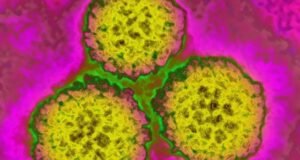
The infected blood inquiry is holding two more days of hearings amid concerns about the government’s response on compensation, with campaigners warning they are “losing faith”.
It comes nearly a year after the final report was published into the scandal – said to be the biggest treatment disaster in the history of the NHS.
More than 30,000 people contracted HIV and hepatitis from contaminated blood products in the 1970s and 80s – and 3,000 people have since died.
Victims groups have since said the government has been slow to pay out compensation and the process was lacking transparency. Inquiry chair Sir Brian Langstaff said he had decided to act given the “gravity” of the problems expressed.
The government said it was “fully-committed” to cooperating with the inquiry.
And a spokesperson said it was continuing to act on the inquiry’s recommendations, adding: “The victims of this scandal have suffered unspeakably.”
When Sir Brian’s final report was published last May, the then Conservative government responded immediately setting out a new compensation scheme.
While some victims had received payments previously, the new compensation scheme increased the amount they could be paid and made compensation available to a much wider group of people, including to the family and loved-ones of those who were infected.
A new organisation, the Infected Blood Compensation Authority, was set up to oversee the scheme with nearly £12 billion set aside for payments.
The first payments were made late last year, but by mid March just 40 payouts had been agreed. The government has given itself until the end of 2029 to make payments.
Anger
In evidence sent to the inquiry, victims and their lawyers criticised the length of time it was taking and described “shambolic” and “chaotic” meetings, with problems starting before and continuing after July’s election.
Sir Brian said: “The decision to hold hearings has not been taken lightly. It reflects the gravity of concerns expressed consistently and repeatedly to the inquiry.
“People infected and affected do not have time on their side.”
The new hearings will be held on 7 and 8 May.
Cabinet Office minister Nick Thomas-Symonds will give evidence along with senior officials from the Infected Blood Compensation Authority (IBCA).
Groups representing people infected and affected by the scandal will also give evidence.
Kate Burt, chief executive of the Haemophilia Society, said: “This powerful and unique intervention reflects the contaminated blood community’s widespread anger, confusion and despair that the government is failing to deliver on its promises.
“People are starting to lose faith that they will ever receive a fair settlement.”
 Weekly Bangla Mirror | Bangla Mirror, Bangladeshi news in UK, bangla mirror news
Weekly Bangla Mirror | Bangla Mirror, Bangladeshi news in UK, bangla mirror news







